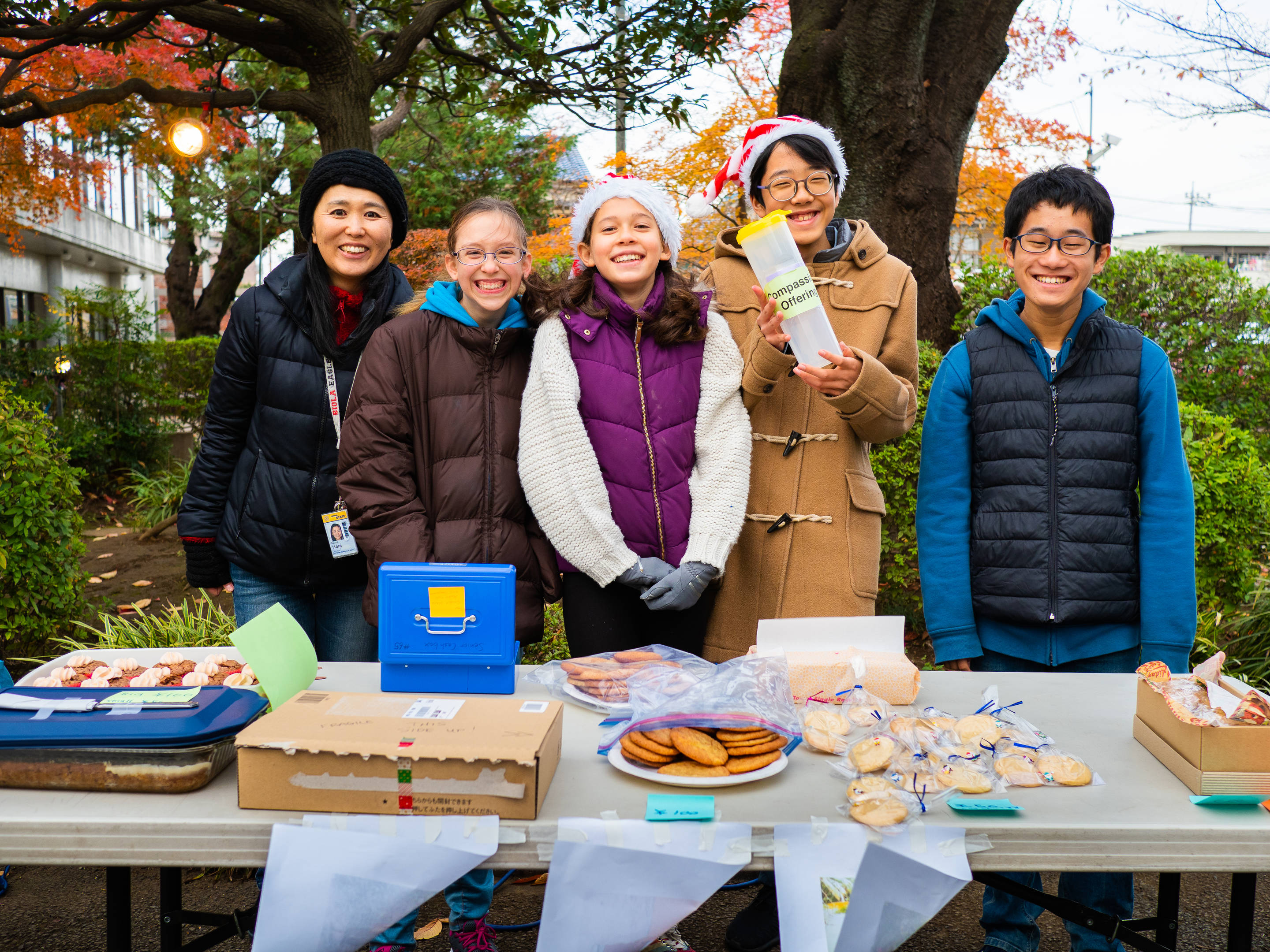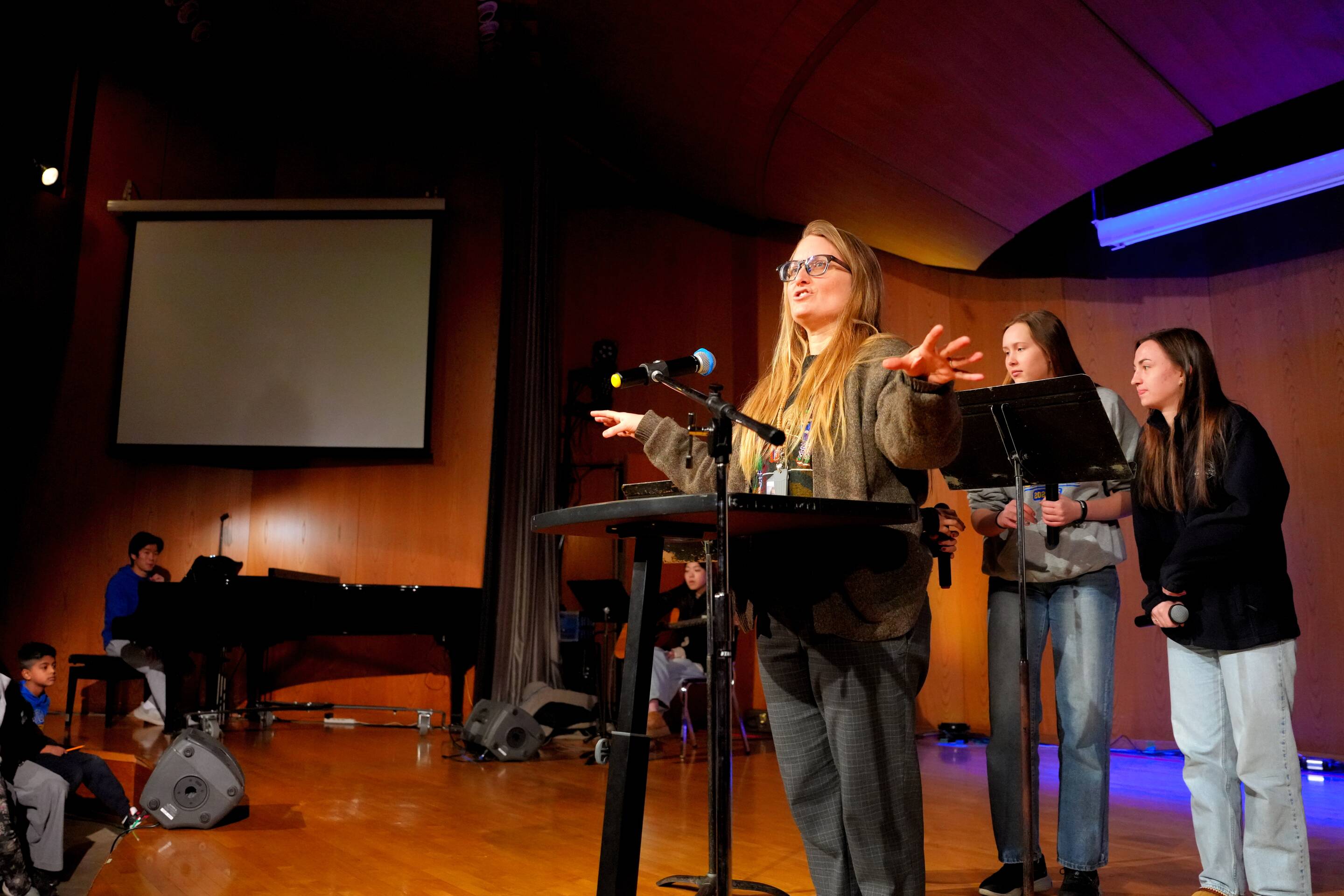Building on Our Foundation
10/22/2020 10:28

Our beliefs provide the foundation for everything we do at CAJ. When we explore how we respond to important current issues like racism, oppression, or any sort of injustice in the world, we go back to our core beliefs as we seek the appropriate ways to equip our students to face these issues -- while they are here on campus, as well as after they leave us.
We believe in principle-based initiatives that benefit all students, provide equity for learning, help students to value diversity and practice empathy, and that foster attitudes that will help our students address the important issues they face in the world today and in the future. Issues may change or evolve, but as students learn to know themselves and others as dearly loved image-bearers of God; as they learn, practice, and apply principles such as justice, respect, integrity, persistence, and love (among other important principles) they will grow and develop as individuals. They will also be equipped to serve God and others, making a positive impact on Japan and the world.
If our vision is "to equip students to serve Japan and the world for Christ" we must be clear about how we equip them. As school leaders and staff members, we have been taking a close look at our core statements and how they inform the way we reach our vision. Over the past few years, we have crafted a mission statement and revised our core values to be applicable to many situations. Understanding that God is the author of all truth; that he created humans in his image; and that he designed us for community helps us devise and implement honest, respectful and collaborative practices.
If we are to have well-equipped students, we want them to be safe, protected, and able to understand themselves and others. To this end, we have a strong and applicable Child Protection and Safety Policy with ongoing training in it for our staff, led by a designated Child Safety Coordinator. We also have initiated a practical curriculum of Social and Emotional Learning, including an emphasis on empathy in our younger grades. Students learn to understand themselves and others in a safe environment, through a biblically sound framework.
If we are to equip students to serve in the world of the 21st Century, they need to understand the world they serve. To this end, we have an ongoing curriculum review in order to address the needs of students learning and living in the 21st Century. This has included adding courses to our curriculum and revising others that needed updating. We are seeking ways to provide for more student choice in the things they read and study, as well as providing topics that will stretch their minds and stimulate their thinking.
If we are to equip our students, those who do the equipping -- our teachers -- must also be equipped. We have ongoing training in "Teaching for Transformation", a methodology designed for applying a biblical perspective to curriculum, allowing for practical application of principles that include justice, service, creativity, and stewardship. We have also provided opportunities for staff to grow in awareness about issues including racism and diversity.
We needed time in our schedule for many of the changes we were making, as well as flexible structures in place to accommodate and support all we are doing. Block scheduling has allowed more time for discussions and different styles of instructions, incorporating workshops and increasing student choices. We have also been able to add clubs and electives, allowing for individual interest development and opportunities to exercise individual talents.
Though many of the recent changes were not designed to address one particular issue, we have seen how applying current, effective policies and practices benefits all students and allows them to grow and learn in the ways that help them to be change-makers in society.




